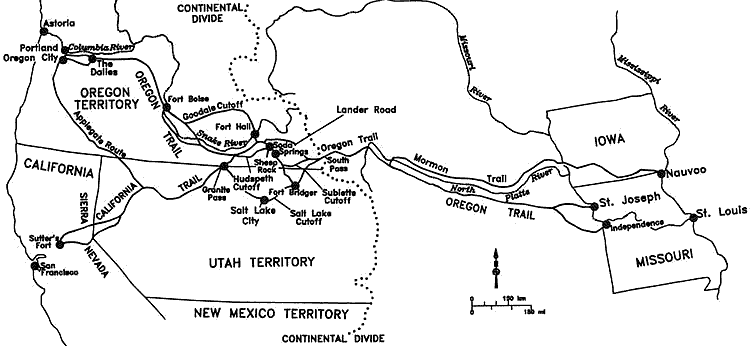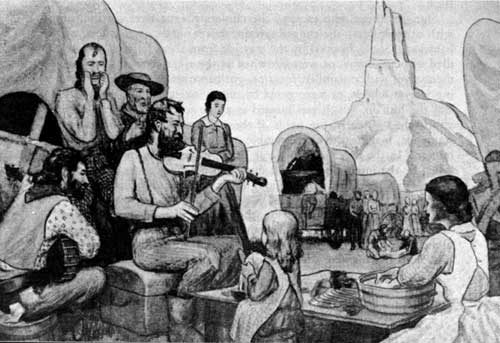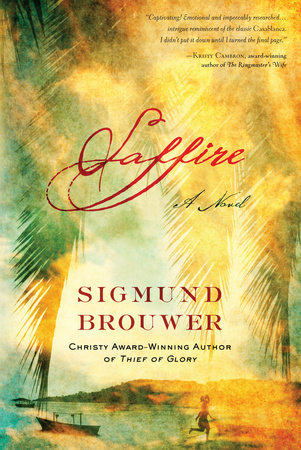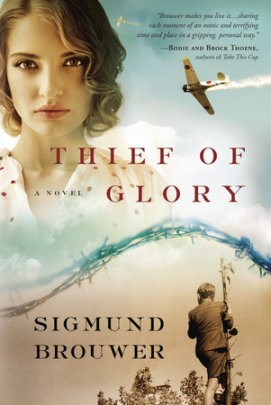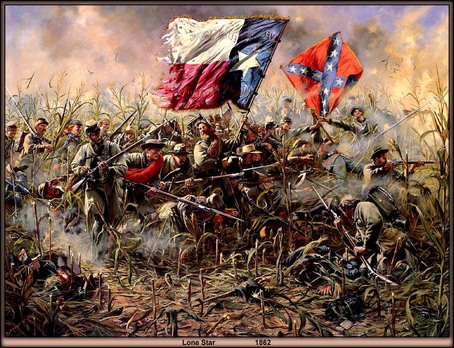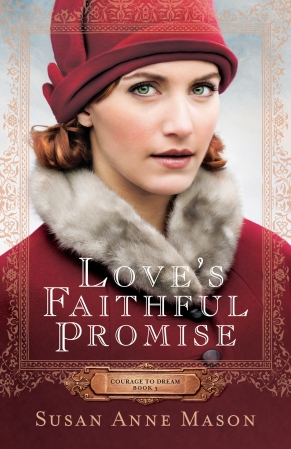
The younger O'Leary children have grown up!
1922
Deirdre O'Leary has completed nurses training and now is in medical studies at Boston University. Upon receiving a telegram that her mother has had a stroke leaving paralysis, she is on a train to New York. A month earlier she had been working at the same hospital in Manhattan. Now Mama is in a silent room.
Deirdre's father requests, with her medical understanding, that she travel to Canada to talk to a young doctor about coming to Irish Meadows to apply his experience with physical therapy to his wife's stricken limbs. Aiding injured soldiers in his practice on staff at the Toronto Military Hospital and personally attending his young daughter's delicate health following tuberculosis two years earlier, have been his immediate focus. With his wife, Priscilla, dying from the same disease, Dr. Matthew Clayborne is not prone to leave to manage a single patient in Long Island. A turn in young Phoebe's health demands that along with Phoebe's nanny, Miss Shearing, they begin their journey ~ for a month.
 Fresh air at Irish Meadows has begun to do wonders in strengthening Phoebe's body and outlook. So different from the confines of the city, she has gotten some color to her cheeks... and laughter so long ago heard.
Fresh air at Irish Meadows has begun to do wonders in strengthening Phoebe's body and outlook. So different from the confines of the city, she has gotten some color to her cheeks... and laughter so long ago heard.The stable brings a few surprises as new employee "Jo/Joe" stands in for her newly hired brother ~ who is working in his father's place after an injury prevents him from beginning his new position! What a web is woven for Connor O'Leary to sift through.
As the seasons turn from one to another in the normal progression, hearts are turned from an expectation of just carrying on.
For I will restore health unto thee, andSummer winds bend to turning of leaves, to the bare limbs of winter. Within, limbs are being restored through exercise and Mrs. O'Leary is adding to the healing of a heart in Dr. Clayborne. A mother's touch to add a restoration to ungleaned memories left in the shade of days gone by.
I will heal thee of thy wounds, saith the
Lord. Jeremiah 30:17
The ending of this series brings the beginning of hope to those unfettered by disillusions never intended.
Enjoy this excerpt from Susan Anne Mason's Love's Faithful Promise ~ Chapter 1
1
September 1922
New York City
Deirdre O’Leary strode down the wide corridor on the second floor of Manhattan’s Bellevue Hospital, her stomach quivering with each step.
How many times had she walked these halls? Hundreds? Thousands?
Eagerly as a nursing student, and later with confident efficiency as a practicing nurse.
But never with such dread.
Barely a month had passed since she’d quit her position here, and now she was back for the worst possible reason.
In the pocket of her linen jacket, Deirdre’s fingers closed around the slip of paper she’d read dozens of times on the train from Boston. Her father’s telegram.
Your mother had stroke. Come quickly.
As a nurse, Deirdre knew all too well the dangers and the complications that could arise. The odds were high that Mama would suffer a second and possibly fatal stroke. As soon as Deirdre had read her father’s message, she’d left her medical studies at Boston University and boarded the next train for New York.
Now the heels of her shoes tapped a staccato rhythm that echoed off the sterile hospital walls. The familiar scents of antiseptic and pine cleanser brought her a small measure of assurance, reminding her of the healing that took place within these walls. She’d witnessed many miraculous recoveries during her time here as a nurse.
She would expect no less for her mother.
Deirdre passed the waiting room, surprised to see none of her brothers or sisters inside. She’d expected them all to be keeping vigil here. She slowed her pace as she came to the room number she’d been given and laid a hand on the doorframe while she paused to control her rapid breathing. For her family’s sake, she must appear calm and in control.
Professional.
No matter how badly her heart was shattering.
She stepped through the doorway, and an unnatural hush met her ears. Right away her gaze flew to the metal bed that dominated the room. Her mother lay still beneath the bleached white sheets. Beside the bed, her father sat hunched over the rail.
Deirdre’s lower lip quivered. Mama looked so weak, just as she had when they’d almost lost her to typhoid fever. Deirdre and her brother Connor had also contracted the disease and had bounced back quickly, but not Mama. The illness had taken its toll, sap ping much of her mother’s vitality. The same panic Deirdre had felt back then returned to create a vise grip around her lungs.
She released a shaky breath and moved farther into the room. Against the far wall, her oldest sister, Colleen, sat with her head back, eyes closed. At least Daddy wasn’t alone.
Her father looked up, the pinched lines in his forehead easing as he spotted her. “Dee. Thank heaven you’re here.”
He rose to embrace her. The fragility in his blue eyes, a direct contrast to his strapping build, tore at Deirdre’s composure.
She kissed his cheek. “How is she, Daddy?”
“Stable for now. It’s been more than twenty-four hours with no further episodes, which the doctor says is an encouraging sign.”
“He’s right.” She lifted the chart from the end of the metal bed frame and scanned the notations. The word paralysis jumped off the page in several spots. She pressed her lips together. “Has the doctor said what treatment he recommends?”
Daddy’s features hardened. He moved closer, his voice barely audible. “We’ll discuss that later. For now, your mother needs to regain her strength.”
Across the room, Colleen roused from her slumber, stretching her arms over her head. “Dee! Thank goodness.” She pushed up from the chair, and Deirdre’s gaze fused to her swollen abdomen. Another Montgomery baby on the way? How had she missed that piece of news?
Colleen grabbed Deirdre in a vigorous hug. “Now that you’re here, we’ll all feel better. If anyone can help Mama, it’s our resident nurse.” She pulled back. “Or should I say doctor-in-training?” Despite her obvious fatigue, a twinkle shone in her sister’s violet-blue eyes.
“I’ll do my best, no matter what title you give me.” Deirdre smiled. “You look wonderful. Why didn’t you tell me I’m going to be an aunt again?”
Colleen rested a hand on her belly. “With the size of our brood, I figured it must be boring by now.”
“Nonsense. It makes what you do all the more amazing. Running the orphanage with Rylan, adopting two children, having two of your own, plus another on the way . . .” She tilted her head to one side. “You make medical school look easy. Besides, babies are never boring. Are they, Daddy?”
“Not my grandbabies.” He gave a weak attempt at a smile, his gaze straying to the bed as though he was worried Mama wouldn’t be able to enjoy the anticipated addition to the family.
“Where is everyone?” Deirdre asked. “I expected the waiting room to be bursting with O’Learys.”
Daddy resumed his place by the bed. “The others have been here and left. We’re setting up a schedule so your mother is never alone.”
A shiver of alarm wound its way along Deirdre’s spine.
Colleen laid a hand on Daddy’s shoulder. “Speaking of which, I need to get home before the children are out of school.” She kissed his cheek and embraced Deirdre once more. “We’ll talk soon.”
As soon as Colleen left, Deirdre faced her father. “Have the doctors said if Mama’s out of danger yet?”
He rose and motioned to the hallway. His tall frame seemed to eat up the space in the corridor. “The doctors won’t say much. Only that her condition hasn’t worsened.”
Deirdre bit her lip. “Did they give any hope for recovering the use of her limbs?”
A nerve twitched in Daddy’s jaw, a sure sign he was upset. He shook his head. “They say there’s nothing they can do. Told me to prepare for permanent paralysis.”
“But surely there’s some type of therapy—”
Daddy made way for an orderly to pass with a mop and bucket. “I have people looking into the best facilities in the country.”
Deirdre’s throat seized, forcing her to swallow before she spoke. “Surely you’re not thinking of putting Mama in a facility?” Her desperate whisper echoed in the hall.
“Of course not. I plan to bring in a specialist.”
“Thank goodness.” Her shoulder muscles went lax with relief. For a moment, she’d worried her father had taken leave of his senses.
Daddy draped an arm around her, and they started back toward Mama’s room. “Actually, your Uncle Victor has a doctor in mind. One who’s making remarkable advances with injured limbs up in Toronto. He’s going to speak to him and get back to me. In the meantime”—he turned to face her—“I need to know. Will you come home to look after your mother?” His expression became apologetic. “Brianna and Colleen have offered, but they both have young families. And you’re the most qualified.” A hint of pride sounded in his voice.
Deirdre paused to savor his words. He’d been far from thrilled when she’d first told him of her desire to become a nurse. And even less so once she’d decided to study medicine.
Visions of the campus at Boston’s medical school flashed through her mind. After only a few weeks in attendance, she’d barely gotten used to her classes. Her professors had assured her they understood why she had to leave, but how long would they hold her spot when so many students clamored to get in?
Brighter, more promising students than she.
Her thoughts turned to Jeffrey and how much she’d already sacrificed to pursue this career path.
Yet one look at the pleading in her father’s eyes and every trace of doubt vanished. “Of course, Daddy. There’s nowhere else I’d be.”
She only prayed that delaying her studies, even for a short while, wouldn’t permanently derail her dream of becoming a pediatrician.
~*~
“That’s it, Fred. One more repetition and you can stop for today.” Matthew Clayborne guided the soldier’s shriveled leg to a forty-five-degree angle and counted as Fred held the position for a full minute.Sweat poured from the man’s brow. He grunted when his leg finally dropped. “If you’re trying to kill me, Doc, it’s working.”
Doubts crept in as Matthew unstrapped the iron weight and removed it from Fred’s shin. Had he pushed the man too hard for his second round of therapy this week?
Fred grinned, easing the lines of pain etched into his fore head. “Relax, Doc. I’m joking.” He grabbed the crutch leaning against the wall next to him, pulled himself up, and hobbled over to his wheelchair. “Despite the pain, it actually felt good. Like the exercises are working.”
A wave of relief rushed through Matthew’s chest. “Glad to hear it. With continued hard work, you should be out of that chair in six months or less.” Matthew turned to make a notation on the man’s file.
Fred’s story was much the same as most of Matthew’s patients. Young and fit before he became injured in the war. Sent home a cripple.
As Matthew almost was.
Fred maneuvered his chair across the room. “See you next week, Doc. Unless a pretty girl makes me a better offer.” He chuckled while retrieving his hat from a low bookcase near the door.
Rubbing the thigh of his own bad leg, Matthew marveled at Fred’s ability to keep such a cheerful attitude. At least Matthew could walk, albeit with a slight limp.
“What’s this about a pretty girl?” Marjorie, Fred’s wife, appeared in the open doorway, holding a small boy’s hand.
Fred’s whole face changed, and the ravages of the pain he’d endured gave way to a laugh. “I’m talking about you, of course, honey. You’re the only pretty girl in my life.”
Marjorie’s simulated scowl changed to a blinding smile that radiated her obvious affection for her husband. “Good answer, Mr. Knox.” She bent to kiss him.
Matthew turned away, unable to squash a flare of envy. Even if Fred never walked again, Matthew doubted it would affect Marjorie’s devotion. Did the man know how lucky he was? Unwelcome images of Priscilla wisped across Matthew’s mind. He would never forget her look of disgust upon seeing the ugly scar that traversed the length of his upper leg when he’d returned from overseas.
Fred’s son, Harry, gave a loud whoop, snapping Matthew from his brooding. The child hopped onto Fred’s lap and flung his arms around his neck. “Daddy, can we go to the candy store now?” His exuberance pulsed through the room like a current of electricity.
“That all depends, young man. Have you been good for your mama while you waited?” Fred regarded the boy who squirmed on his lap.
“Mostly good. Mama only had to call me ‘Harrison’ once.”
Fred’s lips twitched. “Well, I suppose that deserves some licorice and gumdrops. Don’t you agree, Mama?” He winked at his wife.
Marjorie laughed. “As long as I get some as well.”
The lad leapt up and raced across the room. Matthew contemplated the boy with bemused admiration, trying to imagine his frail Phoebe with so much unbridled energy.
Marjorie turned to Matthew. “How did Fred do today, Dr. Clayborne?” The note of hope in her voice was unmistakable.
Matthew gave a brief nod. “He’s doing very well. If he continues to make progress, he might be out of that chair by late spring.” There, he’d given himself—and Fred—more time than expected.
If Marjorie was at all dismayed by the length of time the therapy would entail, she hid it well. “I want to thank you again, Doctor, for everything you’re doing. When I think of the years Fred wasted because no one was willing to work with him . . .” She bit her lip and broke off. “I thank God every day that we found you.”
At the sheen of emotion filming her blue eyes, Matthew took a step back, fearing she might try to hug him. “Your husband is doing the work. He deserves your praise, not me.”
She laid a hand on her husband’s shoulder and smiled. “You both deserve credit. Goodbye, Doctor.”
As soon as the young family left him in blessed solitude, a band of tension eased, allowing Matthew to breathe normally again. He moved to the counter and jotted a few more notes regarding the next therapy session. When he finished, he drew his watch from his vest pocket. Ten minutes until his next patient arrived. Unfortunately, Mr. Worthington was not nearly as receptive to treatment as Fred Knox.
A quick knock sounded on the door. Matthew looked up to see the medical director, Dr. Victor Fullman, enter the room. Victor had been his boss ever since Matthew had joined the staff of the Toronto Military Hospital almost four years ago.
“Good day, Matthew. Might I have a word with you?”
Matthew worked to keep the surprise from his features. It was highly unusual for Victor to come down to the therapy room. Normally, he would send word for Matthew to come to his office. “Of course, Victor. Is anything wrong?”
The big man crossed the floor. “I have a request I wanted to run by you as soon as possible.”
From the hesitant look on Victor’s face, Matthew imagined he was not going to like it. He removed his reading glasses and set them carefully on the counter. “What type of request?”
“I had a call from a good friend in New York.” Victor crossed his arms over his barrel of a chest. “His wife has suffered a stroke and is paralyzed down one side of her body.”
“That’s unfortunate. I’m sorry.” Matthew rose from the stool he was sitting on.
“The neurologist at Bellevue doesn’t offer much hope for recovering the use of her limbs. James, however, is a stubborn Irishman and refuses to accept the prognosis.” Victor smiled, creating fine wrinkles around his eyes.
Matthew waited, still not understanding what this had to do with him.
Victor straightened. “I’d like you to take on Mrs. O’Leary as a private patient. Consider it a personal favor to me.”
Matthew frowned, the word private ringing all sorts of alarm bells. “Is Mr. O’Leary having his wife transferred here?”
Victor regarded him steadily. “No. I want you to go to him. He lives on a large estate on Long Island, and there’d be—”
“Absolutely not.” Matthew stalked to the small rectangular window high on the wall that looked out at street level. He stared at the feet walking past on the sidewalk, his heart pumping unevenly in his chest. How could Victor suggest such a thing? He knew how much helping the soldiers meant to Matthew. The slightest delay in their therapy could set their progress back by weeks, even months. “I can’t abandon my patients here.”
“Dr. Marlboro can fill in until you return.”
Matthew whirled. “Dr. Marlboro has no idea of the type of work I’m doing with these men.”
Victor didn’t blink. “You could fill him in before you leave.”
Matthew opened his mouth, prepared to list all the reasons why that would be impossible. At the steely look in Victor’s eyes, he stopped. No use wasting his breath on explanations when his boss would simply counter every one. “It’s out of the question, Victor. Now, if you’ll excuse me, I need to prepare for my next patient.”
“Did you not mention just last week that the need for your services is dwindling? That you’re considering a new direction for your practice? This could be your chance to test your techniques on someone paralyzed by a stroke.”
It was true. The number of his patients had lessened. Most had reached the maximum benefit possible, while several still relied on their sessions to keep their muscles from atrophying. For Matthew’s practice to remain vital, he would have to expand his clientele. Yet the thought of such a drastic change, of possibly having to move to another facility, made him shudder.
“I’m sorry, Victor. Perhaps if she were to come here, I would consider it, but I simply cannot leave the city right now.” Not with Phoebe in such a fragile state. Perspiration gathered under Matthew’s collar while he held Victor’s stare.
At last, Victor inclined his head. “I understand this is a big decision. Especially given your personal circumstances. But I’m asking you to think it over. James O’Leary is like a brother to me. If I can do something to help him, I have to try.”
Once the door closed, Matthew expelled a long breath. This was one battle his mentor wouldn’t win. No matter how indebted he was to the man, Matthew would never leave Toronto, never leave Phoebe, to cater to one rich, entitled woman.
His daughter and his fellow soldiers needed him far too much for that.
Susan Anne Mason, Love's Faithful Promise Bethany House, a division of Baker Publishing Group, © 2016.
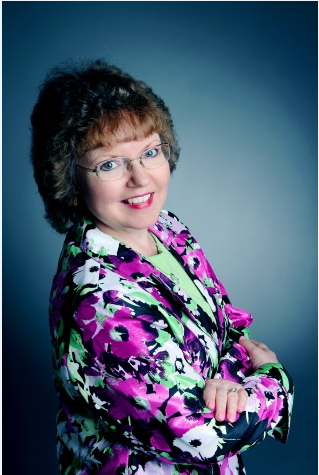
***Thank you author Susan Anne Mason for a review copy through Bethany House Publishers of the third book in her Courage to Dream series surrounding Irish Meadows! This review was written in my own words. No other compensation was received.***






